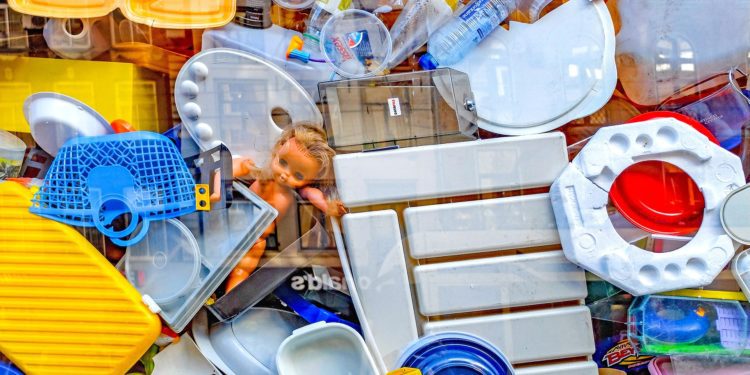Why CSR is good for business as well as the environment

Register to get 1 free article
Reveal the article below by registering for our email newsletter.
Want unlimited access? View Plans
Already have an account? Sign in
No longer are the social and environmental activities of businesses treated as additional or voluntary projects. Corporate Social Responsibility (CSR) and triple bottom line (TBL) accounting now form a key part of core business models.
Triple bottom line accounting incorporates profit, people and the planet, also referred to as the three Ps, as opposed to a traditional single bottom line: profit. In other words, a business can choose to consider the social and environmental impact of its activities in the pursuit of profit and improve its corporate image in the process.
Together with a good CSR strategy, a triple bottom line approach helps generate revenue through reducing waste, improving energy efficiency and generally becoming more appealing to environmentally-conscious customers, 88% of whom think companies should try to achieve their business goals while improving society and the environment.
The importance of CSR in business has been gaining momentum over the past decade, and high-profile organisations such as Marks and Spencer are now implementing sustainability plans with an aim to meet government targets and improve public image. The European Commission proposed one such target, which stated businesses should recycle a minimum of 65% of packaging and materials by 2025.
TBL + CSR = Growth
Implementing triple bottom line accounting and increasing CSR efforts brings benefits not only from an environmental and ethical standpoint, but also from a financial perspective.
Returning to the example of Marks and Spencer, the company implemented its sustainability strategy, ‘Plan A’, in 2007 at a predicted cost of £40m. After 10 years of reducing packaging materials, cutting food waste, installing energy efficient LED lights in stores and warehouses and monitoring real-time energy and water use, the company reported a £176m business profit before tax in 2016/2017.
Supporting the good-for-business case still further, a US-based consultancy firm Pure Strategies, published a report on business sustainability projects in 2015, which showed a strong correlation between sustainable investment and business growth. Of 152 surveyed companies, 27% of those that had already implemented sustainability projects such as using recycled materials saw $5m (£3m) in increased sales, and 33% saw $5m (£3m) or more in benefits from making efforts to take good care of their employees; the triple bottom line in all its glory.
By implementing these strategies and policies, UK businesses can reap the same benefits and start to have a positive impact upon the environment simultaneously.
What the people want
Businesses must also take into account the opinions and values of their employees in order to effectively implement a good CSR strategy. A study by facilities management service, Direct365, revealed that more than one in four employees want the companies they work for to step up for the environment.
And it’s not just employees who are keen to see companies get serious on their green credentials; consumers are also pushing for change as 27% say that any business they associate with needs to have clear CSR policies in place.
We are big advocates of the circular economy and actively encourage businesses to consider where their products will end up when choosing materials.
The circular economy is created when materials are manufactured, used by the consumer, recycled and reused as a new product, thereby starting the cycle again. By far a better alternative to the traditional linear economy which results in materials being wasted or ending up in landfill and damaging the land on which we live.
Government targets state that we need to recycle at least 50% of household waste by 2020, and with rising landfill taxes pushing up the cost of putting waste in the ground, it’s becoming increasingly important for companies to invest in recycling initiatives in order to divert waste away from landfill.
Though the government has set targets for household waste, there is currently no legislation in place surrounding the consideration of end of life scenarios by producers, manufacturers and retailers. We believe that businesses should already be putting procedures in place to ensure their products can be recycled efficiently, as those who are making efforts to combat this problem now will put themselves one step ahead of future legislation.
In this way, businesses can go far beyond reducing and recycling packaging materials and installing energy efficient light bulbs to improve their sustainability. Organisations such as furniture retailers, housing associations, hospitals and hotel chains should implement recycling strategies for not just small packaging but the bigger items they regularly deal with, such as mattresses and other furniture.
These larger items like sofas, beds and mattresses, pose recycling challenges due to their size and mix of materials. These items are known as ‘bulky waste’, and we throw away around 1,600,000 tonnes of it every year in the UK.
Businesses and organisations who build waste recycling and reuse into their CSR and sustainability plans are not only taking another big step towards operating a triple bottom line approach, but are also beginning to pave the way for responsible business practice and becoming advocates of the circular economy.
Nick Oettinger is the managing director at The Furniture Recycling Group. Nick has previously worked as the managing director of a specialist construction company before moving into the waste and recycling industry.







